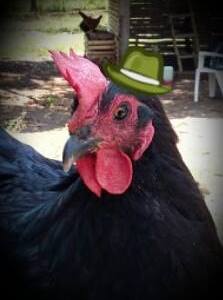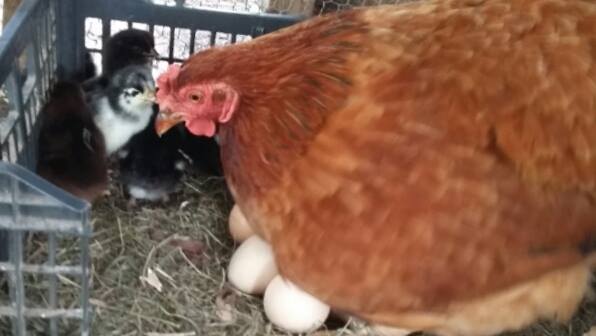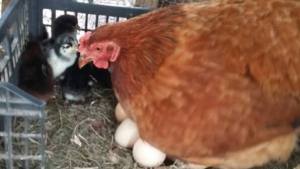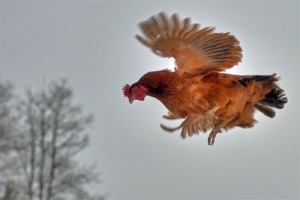Pareciera obvio desde el punto de vista biológico que los cuidados maternos son vitales para los pollitos. No obstante, la supervivencia casi perfecta alcanzada con la crianza masiva en incubadoras artificiales, aunada al éxito comercial que permiten, lanza dudas de tintes lapidarios sobre mamá gallina. Después de todo ¿cuántas gallinas serían necesarias para igualar la producción de 200 000 pollitos semanales de una planta incubadora, destinados en su mayoría a una vida en jaulas?
Y una se pregunta ¿de qué se pierden los pollitos criados sin madre?
Numerosos estudios en diversas especies de mamíferos y aves presentan evidencias de la importancia de los cuidados maternos. Muchos estudios se han realizado y se realizan sobre la crianza de gallinas y pollos bajo distintas condiciones. Sin embargo, no hay muchos estudios que comparen el desempeño de las gallinas criadas con madre y sin ella.
De acuerdo con Perré, Wauters y Richard-Yris (2002) y algunos otros autores más, basados en experimentos con gallinas confinadas al laboratorio, la mamá gallina tiene una influencia fuerte y duradera sobre las preferencias alimenticias, la disposición para la exploración, la reactividad emocional ante situaciones nuevas y la sociabilidad de las crías. Los pollitos criados por mamá serán más aventureros, con un sentido espacial mas desarrollado, menos espantadizos ante los humanos y buscarán más la compañía de sus hermanos de crianza que los pollitos sin mamá; tenderán a formar jerarquías sociales más horizontales, a presentar un comportamiento menos agresivo y desarrollaran mayor ritmicidad y sincronía en sus actividades diarias. Pero comerán menos y crecerán mas lento que los pollitos sin mamá.
De acuerdo con un buen número testigos criadores de gallinas en libertad, mamá gallina enseña a sus pollitos dónde y qué comer y beber; dónde guarecerse de la lluvia y dónde esconderse del depredador; cuando reunirse, cuando dispersarse. Los enseña a ser gallinas.
Por ello no me sorprende que las enseñanzas maternas cobren mayor importancia y sentido en un contexto de libertad y no de jaula. ¿Y entonces de qué se pierden los pollitos de incubadora? De nada menos que de vivir una vida de pollos.
¿Tú qué opinas?
It would seem obvious, from a biological perspective, the vital role of maternal care for chickens. Nevertheless, the almost perfect survivorship rates achieved by massive nursing through artificial incubation, together with the economic success they allow, have cast mortal doubts upon mother hen´s importance. After all, how many hens are needed to match the production of 200 000 chickens per week, majorly destined to cages, of an incubator plant?
One can ask then, what are the motherless chickens missing?
Numerous studies on a variety of mammal and bird species account for the importance of maternal care. Numerous studies have been done on the raising of poultry under a variety of conditions. But not so many studies compare the performance of brooded and non-brooded chicken.
Accordingly to Perré, Wauters and Richard-Yrirs (2002) and several other authors, based on laboratory experiments, mother hens have a strong and lasting influence on the food preferences, exploring attitude, emotional reactivity and sociability of their brooded chickens. These would be bolder, with a more developed spatial sense, less fearful of humans, and would look more for the companion of chickens of their own brood, than the non-brooded chickens; they will also form a more linear social hierarchy, be less aggressive, and will develop more rhythmicity and synchrony in their daily activities. But they will eat less and grow slower than the motherless chickens.
Accordingly to a great number of witnesses and experienced producers of free range poultry, a mother hen teaches her chickens where and what to eat and drink; where to shelter from the rain, and where to hide from predators; when to gather, and when to disperse. She teaches them to be chickens.
That is why I am not surprised that maternal teachings acquire more importance and sense in the context of a free life as opposed to a caged existence. So, we ask again, what are the motherless chickens missing? They are missing nothing but just a chicken life.
What do you think?




Comentarios recientes